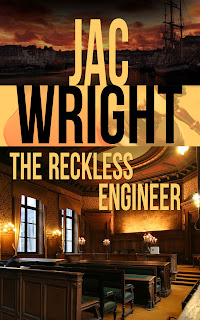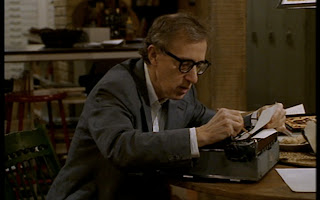"To hell with the lives. Let's go save the money!"
If the last time you were stuck with the characters in an engineering firm in an escalating muddle, this time prepare to meet your characters in the London branch of one crooked American investment bank.
Chapter 1
If you were slacking off at work, falling into that half-conscious state just above deep sleep from which you can remember your disjointed dreams if you wake up slowly, there’s nothing like having a bullet come up between your legs to jolt you back into instant wakefulness and cure you of nodding off at work ever again.
In Jeremy’s defence it was already ten minutes past Friday’s close of business day at the bank and he was putting in the extra hours of work that he usually did. Besides Jeremy had no boss to reprimand him thus if he were to take a break, for Jack Connor and he were the sole directors of BlackGold Silicon, their own engineering firm. He was, in any event, well ahead of their agreed schedule on the pioneering CCTV security system that BlackGold Silicon had been contracted to design, manufacture, install, develop, and maintain by the Chartered American Bank at its three main London branches at Canary Wharf, Liverpool Street, and Oxford Circus. It was true that he had neglected to update their prestigious American client with details of the advanced stages the system was already in, letting the bank know only that Phase II would be ready to go live on Monday the 29th of August 2011 as scheduled. Clients were a demanding bunch and it was always a good strategy to keep them from getting too deeply involved in the development stages to prevent them adding to their wish lists or moving the goal posts with never ending demands. They were, in Jeremy’s experience, also a nosy and a pushy lot, though he was yet to meet a client however disgruntled who had reacted to his reticence or perceived tardiness in such a dramatic manner.

. . .
Thus it came about that Jeremy was lying on his back in the ventilation and air conditioning ducts (which had been newly cleaned for his work) above the ground floor ceiling of the Liverpool Street retail branch of Chartered American Bank at 5:10 that Friday afternoon, nodding off from that end-of-week fatigue that secretly plagued every city worker while running the electrical inspection tests on Zeus’ and Zelus’ cables, when he was jolted wide awake by a loud bang and a bullet whizzing past between his legs.
Any noise Jeremy might have made when he instinctively tried to reverse on his bum and sit up, banged his head, and yelped must have been drowned out by the loud screams coming from the room below him. There was another bang. This time he had the presence of mind to remember that he was in a long, approximately two and a half feet wide and two feet high tunnel made of aluminum or metal sheet. He slid onto his side and lay flat against the left wall of the ventilation duct. No bullet had come past him with the second bang and the room below was momentarily silent.
‘Everybody, quiet! The next person who makes a move or a sound will be dead along with your office manager here.’
The man’s voice paused menacingly to make sure his message had been received and was being obeyed.
‘People, this is a bank robbery. All we want is the money, somebody else’s money. Nobody needs to die here today if you are not stupid.’
The voice coming through the meshed ventilation vents up to Jeremy’s space above the ceiling was unmistakably Irish. He rolled back over onto his stomach and edged forward carefully, crawling silently with his elbows and toes, until he reached the next air vent about three feet in front of him.
The man speaking out loud was at the centre of the large room right below the point where Jeremy had been working. He was wearing a Tony Blair mask, and was holding what seemed like a semi-automatic assault rifle at a plump woman in a dark blue skirt suit and a white and blue striped blouse – the uniform that the bank employees wore. He recognized her as one of the office managers. She would have come out to close the blinds and to clear the customer area the way she normally did every day after close of business to the customers.
The bank had two entrances for the public and one for staff only. The outer entrance from Old Broad Street had a pair of doors made of reinforced fibre glass that opened into a lobby area with six ATM teller machines. This lobby was left open to customers till some late hour when one of the night guards locked the doors. There was an entrance into the main area of the bank from this ATM lobby – a doorway arched at the top with a pair of heavy mahogany wooden doors and brass knobs. The main door exactly similar to this one let in those customers and staff coming up a couple of steps from London Wall. The staff entrance into the managers’ office area was on Great Winchester Street.
Inside, a row of seven cashiers were seated opposite the ATM lobby entrance behind a wooden counter further separated from the public by a reinforced fibre glass panel stretching from the top of the counter to the ceiling. A wooden door to the left of the cashiers opened into a hallway that led to the account managers’ and financial advisers’ offices, including to the doorway into the cashiers’ area. People were led out to these offices by prior appointment for consultations on weighty matters such as mortgages, loans, credit cards, business accounts, and insurance. To the right of the entrance from the ATM lobby was a curved wooden counter taking customer enquiries. About ten weeks ago, Jeremy had pushed this counter forward with the help of the two security guards in order to make some space behind it for temporarily stacking the empty boxes that had come carrying his cables and cameras. To its left was another wooden door that led to the high ranking branch and office managers’ offices and to the safes and the vault in the basement.
Every evening like clockwork at 4:55 p.m., five minutes before close of business day to the public, the bank’s two security guards locked the left door of each pair of beautifully worked and carved wooden doors at the main and lobby entrances and stood by the door remaining unlocked letting any customers already in the bank out, but stopping any new customers from entering. At 5:00 p.m. like clockwork the plump lady or her younger assistant came out the door to the left of the inquiries counter to close the blinds and clear the customer area. By 5:20 p.m. at the latest all customers were seen out. The two doors were locked and the outer security alarm activated by the guards before the cashiers began counting the cash and transferring the day’s proceedings to the vault in the basement.
Today at 5: 12 p.m., however, two men in David Cameron and Nick Clegg masks were holding the guards on their knees on the floor near each entrance at gunpoint with what seemed like .38 or .44 caliber revolvers. The blinds were already drawn and the plump lady was covering her face with her hands, shaking and kneeling on the floor with Tony Blair’s assault rifle aimed at her head. Another man in a Gordon Brown mask was already behind the cashiers’ barrier holding a revolver at the temple of one of the girls.
Upon receiving a nod from Tony Blair, Nick Clegg opened the door to the ATM lobby and let three other men in, two in Maggie Thatcher masks and one in a John Major mask. The two men in the Thatcher masks proceeded to search, bind, and gag the two guards with duct tape, adding the guards’ two revolvers to their arsenal, while John Major hurried in through the managers’ door to get the offices under control, taking the plump lady with him as his hostage. The Thatcher’s followed him pushing the guards forward, their hands tied behind them and their mouths covered with duct tape.
‘Everybody will now move to the managers’ offices quietly, or die here.’
Tony Blair, now waving his semi-automatic weapon at the cashiers, spoke in a loud, but calm and controlled voice. Clegg and Cameron, having locked the doors with the guards’ keys and disabled the alarm system, now proceeded to bind the sobbing and frightened cashiers’ hands behind their backs and tape their mouths with duct tape. Then the coalition marched them out and through the managers’ door to the back offices. Gordon Brown took out one of the empty sacks the men had brought in and piled on the floor of the main room and started emptying the cash registers into it.
‘Lock them in and get working on the vault. I will keep a watch out here,’ Blair nodded to the Clegg and Cameron coalition.
The room became quiet as the main activities and the people moved to the back offices and the vault of the bank. Outside a motorcycle with its silencer removed and its engine backfiring could be heard driving around the bank, its antics likely organised by the gang to drown out the noise of any shots fired inside. Jeremy decided to reverse back down his ventilation duct towards the safer corner of the room where his boxes were stacked behind the enquiries counter, taking a good fifteen minutes to reach the vent above the space.
From his new vantage point the first thing he saw was the young clerk crouching under the enquiries counter. The thieves had missed him during the commotion at the onset of the heist. The lad must have access to the security alarm under that desk, Jeremy thought; he must have pressed the alert and the authorities would soon be here. How would they handle the hostage situation? He wouldn’t be surprised if the swat teams said “to hell with the lives, let’s go save the money” and charged in, he thought.
By now the men had started bringing in sacks of cash and other valuables and piling them on the floor in the middle of the room. Somehow they had gotten into the vault very fast, possibly by threatening the branch manager’s life. Blair opened a sack, took out a handful of gold jewelry studded with diamonds, and laughed out loud.
It all happened in a second. The lad must have been crouching under the table on his toes for he lost his balance and fell backwards onto his bum, his body nudging the chair and making it roll out on its wheels a couple of feet before he could stop it. They held their breath as Blair stopped rummaging in the sacks and looked over his shoulder. He picked up his semi-automatic assault rifle and walked towards the inquiries counter. As the clerk came into his field of vision Blair must have reached the same conclusion that Jeremy had about the security alarm, the authorities, the swat teams, and the money for he pointed his rifle at the clerk and barked out some angry words to summon his gang. The lad panicked and lunged at the rifle pointed at him, pushing it up and away from himself as the weapon fired several rounds. The rounds must have hit the roof. Jeremy felt radiating pangs of intense pain on his left side as he fell down with the collapsing ceiling.
Chapter 2
Jeremy was in a comfortable bed and in bloody aching pain. A night light, no wait … a full moon was on its night watch through the window that stretched all the way up to the high ceiling, smiling with kind concern and glazing the dark shadows of the room with a gentle light. A beep from the green lit machines around him hopped off the seconds, or his heartbeat. To his left a silhouette of a girl slept on an armchair, her head fallen slightly to the left and onto her chest. Jeremy needed a drink of water, but he could not move his hands. Oh God, he thought, he could not move his legs or his hands.
‘Oh God, I cannot move my legs or my hands!’
Jeremy was certain he was screaming, but what he heard coming out of his mouth was a weak groan. It felt like he was outside his own body trying to get in. Still it must have been loud enough, for the girl snapped her head back straight and sat up.
. . .
Back to the Top

















